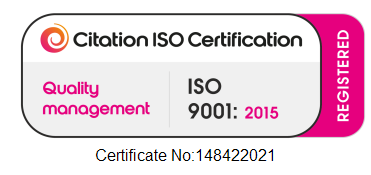Remote electronic Clinical Outcome Assessment (eCOA) has become integral to decentralised clinical trials (DCTs), significantly transforming patient engagement and improving data collection efficiency. This comprehensive blog explores proven best practices for implementing remote eCOA, highlighting effective methodologies, televisit-compatible platforms, and robust remote monitoring strategies.
Introduction
Decentralised clinical trials have rapidly increased, with remote eCOA becoming a cornerstone. Over 60% of trials now incorporate decentralisation, significantly reducing geographic barriers and enhancing patient-centricity. Organisations like STK Life are pioneering advancements, offering purpose-built devices for high-quality remote data collection.
What is Remote eCOA Data Collection?
Remote eCOA involves digitally capturing patient-reported outcomes, clinician assessments, and observational data remotely, eliminating traditional site visits.
Benefits of Remote eCOA:
- Increased patient retention and compliance.
- Real-time data access.
- Greater participant diversity.
- Reduced trial costs.
Challenges:
- Accessibility to technology.
- Concerns about data quality.
- Regulatory compliance issues.
In the UK, the MHRA emphasises adherence to Good Clinical Practice (GCP) principles and robust data protection measures, highlighting the importance of thorough validation of electronic systems.
Best Methods for Remote eCOA Collection
Selecting the right eCOA method significantly impacts trial success.
Patient-Owned Devices (BYOD)
- Pros: Cost-efficient, familiar user interface.
- Cons: Device variability, privacy concerns.
Provisioned Devices
Purpose-built devices from STK Life, such as STK X4 and Titan 5, ensure data standardisation and integrity through controlled environments and secure data protocols.
Wearable Technology
Wearables provide continuous passive data collection, enriching active eCOA reporting and capturing comprehensive health metrics.
Hybrid Approaches
Combining provisioned devices, wearables, and BYOD backups maximises flexibility and data quality.
Televisit-Compatible eCOA Platforms
Integration of televisits supports synchronous data collection, enhancing data accuracy, participant experience, and operational efficiency.
Essential Features:
- Simultaneous application access.
- Synchronised data timestamps.
- Integrated workflows.
- Secure video consultations.
Ensuring Data Quality in Virtual Trials
Maintaining data integrity remotely involves:
- Rigorous validation strategies (psychometric, technical).
- Comprehensive audit trails.
- Remote source data verification.
- Centralised and automated monitoring.
Purpose-built devices from STK Life enhance data quality through built-in validation checks, secure handling, and consistent performance.
Remote Patient Monitoring Best Practices
Effective monitoring includes layered strategies, predictive analytics, automated alerts, and robust escalation procedures.
Key Approaches:
- Personalised patient engagement.
- Clear communication protocols.
- Comprehensive training for all stakeholders.
Implementation Roadmap
Structured deployment phases for successful remote eCOA adoption:
- Planning: Protocol review, technology selection.
- Configuration: Platform and device setup.
- Content Development: eCOA instruments, multilingual support.
- Validation and Testing: Pilot and performance qualifications.
- Deployment: Device distribution, initial support.
- Optimisation: Ongoing monitoring and updates.
Emerging Trends
Innovations shaping remote eCOA include:
- Advanced wearable sensors.
- AI-driven adaptive assessments.
- Predictive analytics for proactive management.
- Integration with electronic health records.
STK Life continues to innovate, developing next-generation devices with advanced biometrics, extended reality applications, and enhanced software integration.
Conclusion
Remote eCOA significantly advances clinical research by enhancing patient participation, improving data quality, and ensuring regulatory compliance. Purpose-built devices from STK Life offer reliable, secure, and consistent solutions tailored specifically for decentralised trials.
For expert advice and tailored device solutions, contact STK Life today to ensure your decentralised clinical trial meets the highest standards.
Frequently Asked Questions (FAQs)
What is remote eCOA?
Remote eCOA is the digital collection of patient, clinician, or observer-reported outcomes using remote electronic devices, eliminating the need for physical trial site visits.
How does remote eCOA improve clinical trials?
It improves patient compliance, enhances participant diversity, enables real-time data capture, and reduces trial costs.
Are there privacy concerns with remote eCOA?
Yes, remote eCOA requires stringent data security protocols, encryption methods, and compliance with privacy regulations such as GDPR.
What are the essential features of televisit-compatible eCOA platforms?
Key features include simultaneous application access, integrated workflows, secure video consultations, and synchronised data timestamps.
How can organisations maintain data quality remotely?
Organisations should implement rigorous validation checks, comprehensive audit trails, remote verification processes, and robust monitoring strategies.
Summary
Remote eCOA is pivotal for decentralised clinical trials, offering improved patient retention, real-time data collection, and cost efficiency. Optimal implementation involves selecting appropriate devices, ensuring televisit compatibility, rigorous data validation, and proactive remote monitoring. STK Life’s specialised devices provide standardisation and integrity, aligning with evolving industry innovations and regulatory requirements.


